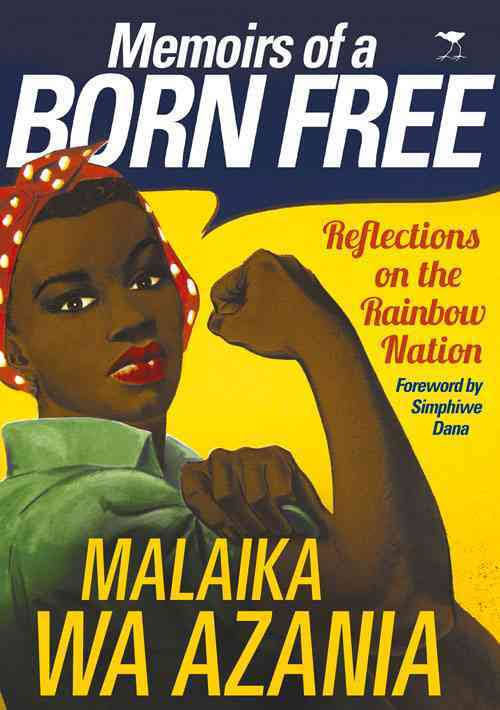
Prince Ntambo on Memoirs of a Born Free
 |
First and foremost, I would like to thank the author Mohale Mashigo for buying this memorable and fascinating book for me. During a book reading she asked me which book I wanted to read next, and I couldn't think of any other book except the one that I've been longing to read – Memoirs of a Born Free. |
I first came across this book when I visited Thato Rossouw's blog, decolonisingliterature.com, during Women's Month. Rossouw was celebrating Women's Month by writing about women who play a leading, remarkable and crucial role in the African literary industry. Having read and enjoyed the writings of Stephen Bantu Biko, published under the title I write what I like, I am always glad to get my hands on any autobiographies or biographies. So when asked which book I wanted to read, the first book that came to mind was this memoir by a young black woman who is not afraid to criticise and question the democratically elected government of South Africa. After 22 years in a liberated South Africa, one is looking for a young Dr Maphela Ramphele, who would see things through the eyes of a born free and speak with the voice of the youth. That person is Malaika Mahlatsi – she is the voice of the youth. She tells her story unapologetically and says what most, if not all young people feel, but are afraid to say out loud.
According to the author this book is dedicated to the sons and daughters of the so-called "born frees", as well as the generations that will come after them. It seems that Malaika has taken it upon herself to discuss the contemporary issues faced by the born frees of South Africa, such as institutionalised racism, which she deals with at the beginning of her book. In this memoir, only unspoken issues which have been side-lined by either the youth or elders are dealt with. Mahlatsi begins her book with a letter to the African National Congress (ANC). She had wanted to write this letter since childhood. Hampered by anger and frustration, she finally wrote the letter constructively and comprehensively. Her frustrations are understandable to me, as recently Wits students were protesting against university fees. I think if one of the students was asked to write a letter to the Minister of Higher Education, that letter would not be constructive as he or she would be furious and devastated at the time of writing.
Malaika Mahlatsi invites us into her world, which is filled with joyful, beautiful and unforgettable memories, while still dealing with the struggles and obstacles she underwent and conquered. What makes this a special memoir is the fact that Malaika lived out most of her childhood days in the historical township of Soweto, and attended both a township school and a multiracial school. As such, she gives us a first-hand information which one finds easy to identify with and relate to, especially if you are a young black person. Malaika was born in 1991 in the Meadowlands suburb of Soweto. She went to a township school from Grade 1 to 4, and later transferred to Melpark, a multiracial school, which was different from the previous one she had attended. At first it was difficult for Malaika to adapt to this new environment. She was now learning with students whom they (townships children) would call coconuts, because of the way they wore uniforms and spoke English. It was at this school that she got her first taste of institutionalised racism.
Malaika has taken many shapes and forms in her journey of self-discovery. Raised by an activist, and supporters of the Mass Democratic Movement, she searched and searched for a political home. After she felt the real and bitter taste of racism at Stellenbosch University, she dropped out. During that period she became an active member of Blackwash (a modern day version of the Black Consciousness Movement). This movement held a September National Imbizo (SNI), which was a disaster as some members of the Blackwash movement were against the movement's ideology. She then found herself in search of a political home again. When the leader of the ANC Youth League, Julius Malema, was expelled, she was doing an interview and was asked the question, "What would you do if you were Julius Malema for the day?" Her response was, “If I were Malema for a day I would form a new political organisation and get Malaika Wa Azania as its spokeswoman. I respect and admire Malema greatly..." Malaika played a role in the formation of the Economic Freedom Front (EFF), but later found that she had views which were different from those of the party's leadership. Once again, Mahlatsi found herself politically homeless. She believes that one day history will rewrite itself, and that it will tell the stories of the born frees.
This book is highly readable, and will appeal to all kinds of people – especially the youth. Memoirs of a Born Free asks us to use our time to mend the leakages left by the apartheid regime.
Buy a copy of Memoirs of a Born Free